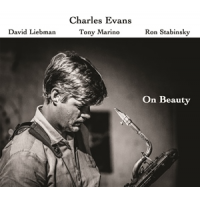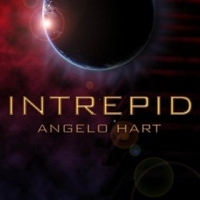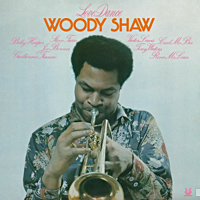Home » Jazz Articles » Album Review » Charles Evans: On Beauty
Charles Evans: On Beauty
Baritone saxophonist Charles Evans is most definitely uncompromising in that he knows what he wants to say and how he wants to say it while continuing to explore his very personal realm of musical expression. While jazz or "creative improvised music" already has a small, but devoted, audience, following this path naturally shrinks it further and Evans ended up starting a highly regarded high school band program to pay the bills.
That said, those who have (or wish to develop) the ears and mind to appreciate Evans' music, will find On Beauty to be a highly emotional and extremely moving work with many sections that are traditionally, almost achingly, beautiful and others which merit that attribute when appreciated from one angle or another.
Yes, there is much intellect involved and the emotional is often filtered through that intellect. The composed material provides the working parts (motivic fragments, twelve tone rows -or at least what sounds like them) and structure (which is notated somehow) of the music, within which the players improvise.
The work thus has a coherence which ends up being quite comforting (and appreciated as beautiful) as the it progresses. The total control that Evans has of the baritone saxophone (particularly its upper register) is also a beautiful thing to hear.
It is a thing of beauty to follow pianist Ron Stabinsky's lines and chords (or clusters) in and of themselves, but also how they interact with the rest of the music; as free as he sometimes plays, he often feels like he is grounding the music and holding it together. Bassist Tony Marino is also indispensable in what he does.
And then there is David Liebman, here staying with the soprano saxophone and for whom this music was written. Whether he is commenting, leading or following, his lines (and sometimes shrieks) are always perfectly placed and the interaction between him and Evans is truly amazing.
On Beauty is superficially a complex work, but one in which (possibly surprisingly) feels it is easy to get inside of. The music rather quickly becomes familiar, the structure becomes more and more recognizable and what at first seems imposing opens itself up.
Straddling any one of a number stylistic labels, Evans' music is ultimately about personal expression, which in the end is highly communicative and very rewarding, and this is what art is about.
Track Listing
Introduction; Movement I; Interlude I; Movement II; Movement III; Movement IV; Movement V; Interlude II; Ending Beauty.
Personnel
Charles Evans
saxophone, baritoneCharles Evans: baritone saxophone; David Liebman: soprano saxophone; Ron Stabinsky: piano; Tony Marino: bass.
Album information
Title: On Beauty | Year Released: 2015 | Record Label: More Is More Records
Tags
PREVIOUS / NEXT
Support All About Jazz
 All About Jazz has been a pillar of jazz since 1995, championing it as an art form and, more importantly, supporting the musicians who make it. Our enduring commitment has made "AAJ" one of the most culturally important websites of its kind, read by hundreds of thousands of fans, musicians and industry figures every month.
All About Jazz has been a pillar of jazz since 1995, championing it as an art form and, more importantly, supporting the musicians who make it. Our enduring commitment has made "AAJ" one of the most culturally important websites of its kind, read by hundreds of thousands of fans, musicians and industry figures every month.





















